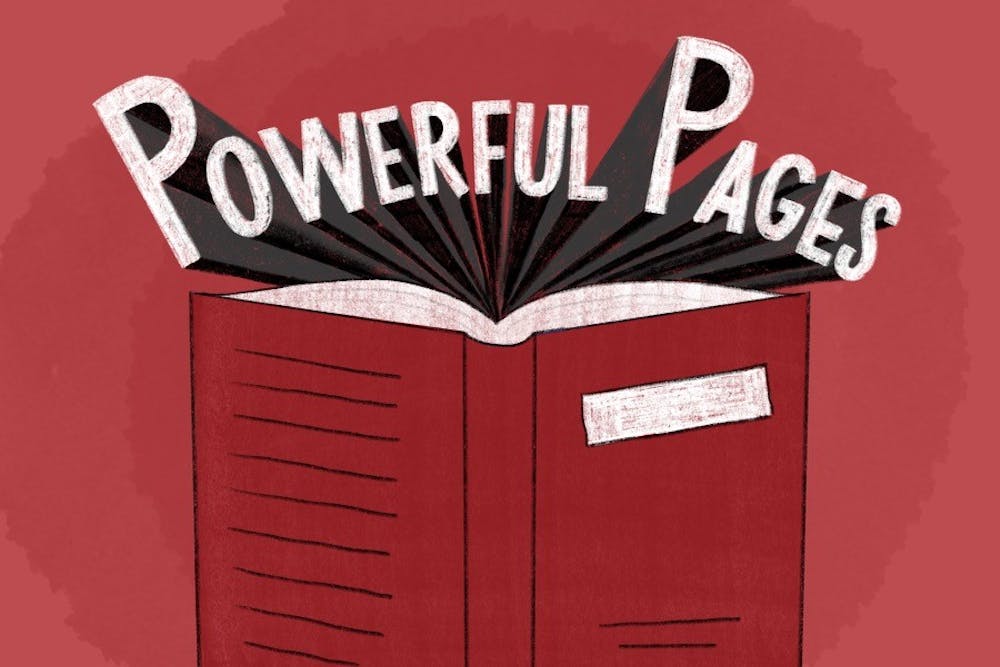“The problem with the contemporary Euro-American novel is that it relies for its structural integrity on suppressing the lived realities of most human beings on earth,” Sally Rooney writes in her latest novel, “Beautiful World, Where Are You.” Rooney broods over the shallowness of the modern novel, seemingly giving in to her work’s detractors.
Ironically, she writes, “My work is, it goes without saying, the worst culprit in this regard. For this reason, I don’t think I’ll ever write a novel again.”
It’s rare to find such a cynical view on contemporary fiction inside a novel of the same genre. There is a similarly skeptical question at the center of “Beautiful World, Where Are You” — are stories about relationships important amid the human strife that faces the world in the 21st century? Directly addressing her critics, Rooney argues they are, and that relationships are at the core of every looming plight facing the world today. Later on in the novel, she writes, “After all, when people are lying on their deathbeds, don’t they always start talking about their spouses and children?”
The book follows a group of friends through their romantic and professional lives. Alice, a recently successful author jaded by fame and the publishing industry, meets Felix, a factory worker, on a dating app. Eileen, who works at a literary magazine, is Alice’s closest friend from college who battles through a significant breakup and becomes involved with her childhood crush Simon. The story is told mostly through emails between Alice and Eileen, and readers must suspend their disbelief in imagining that these are really letters between two friends, as the two move with such ease from discussions on modern romance to the bronze age.
The author’s latest work bears all the markings of a Sally Rooney novel — fractured and undefined relationships and witty characters, with pithy philosophical musings placed jarringly in between. As in her other books, Rooney places her deeply profound — but often irrelevant — political musings throughout. A common criticism of Rooney — true to an extent — is that the leftism in her books often feels like an accessory rather than true political advocacy. The commentary in “Conversations with Friends” felt more decorative than substantial, but the Marxist themes become more integral to the plot in “Beautiful World.” The book moves beyond the brief moments of commentary and explores the political dimensions of romantic relationships, improving upon the past lack of political substance in Rooney’s previous writing.
Possibly the most impressive part of Rooney’s writing is the accuracy with which she writes about relationship dynamics and class. Alice and Felix’s relationship weaves well the political dimension of the novel into the plot. While Felix works in a factory and doesn’t make much money, Alice is well off. The effects of this difference on their relationship come to a head when they have an argument one night when Felix comes home drunk and Alice vulnerably tells him she loves him. Felix, presumably insecure about the class difference in his relationship, insults her viciously, telling her that despite her fame, he doubts anyone really cares about her as a person. Through the struggle for power in this exchange, Rooney analyzes class’ deep impacts on the power dynamics in a relationship.
Besides the political commentary, the characters have much to offer the novel. Sally Rooney rarely writes a fast-paced plot, instead taking time to laboriously develop her characters. Despite this, the novel is never boring — it is character focused, but the characters are complex enough to maintain the reader’s attention. Rooney has an ability to get inside her characters’ heads, writing their thoughts with such precise detail as to make them feel like real people.
Despite the cynicism many of the “Beautiful World” characters fall into, Rooney’s ultimate message is hopeful. In response to her critics, her work maintains that connections, far from being trivial, redeem humanity.
The greatest lesson of her novel can be chalked up to one quote. Rooney suggests that humanity has ignored the world’s problems, “because we loved each other too much and found each other too interesting. And I love that about humanity, and in fact it’s the very reason I root for us to survive — because we are so stupid about each other.”





